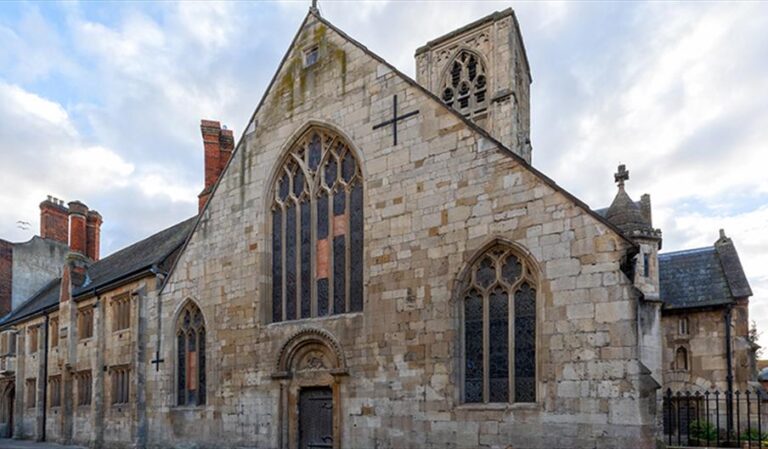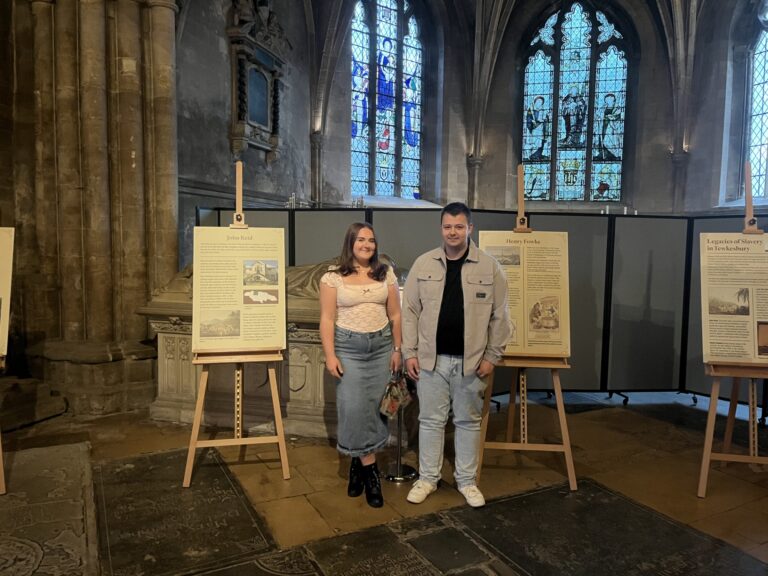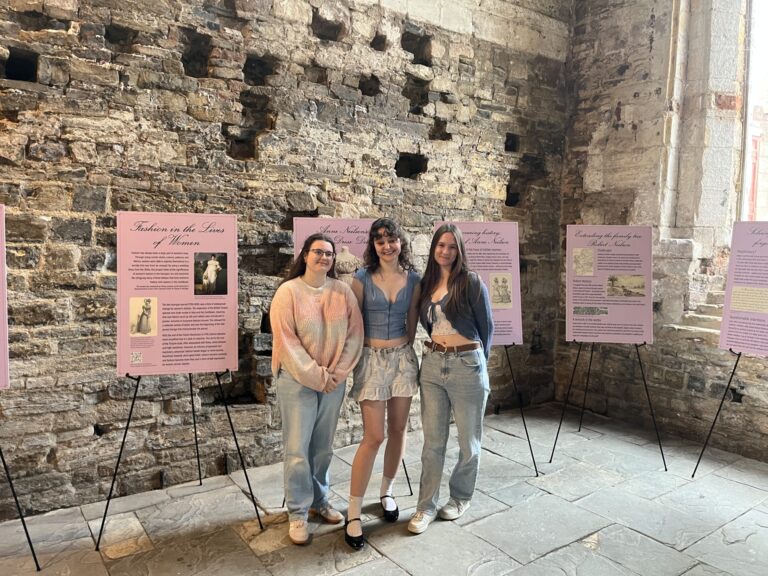| CC4HH
The Life of Lilian Faithfull
This project was conducted by Grace Fry, Megan Kenchington, Tom White and Sam Hodges.
This exhibit focuses on the life, work and legacy of the celebrated Cheltonian teacher, humanitarian, and women’s rights advocate.
Jump to: Family and education | Education and public service | Relationship with pupils | Care home work
Family and education
Lilian Faithfull was born on 12 March 1865. Despite being one of eight children, her father sent her to his brother-in-law’s prep school where she received a well-rounded and rare education. She was the only girl among twenty-five boys. After school she continued to study independently at home and through the university extension movement, which offered lectures in subjects such as history and economics.
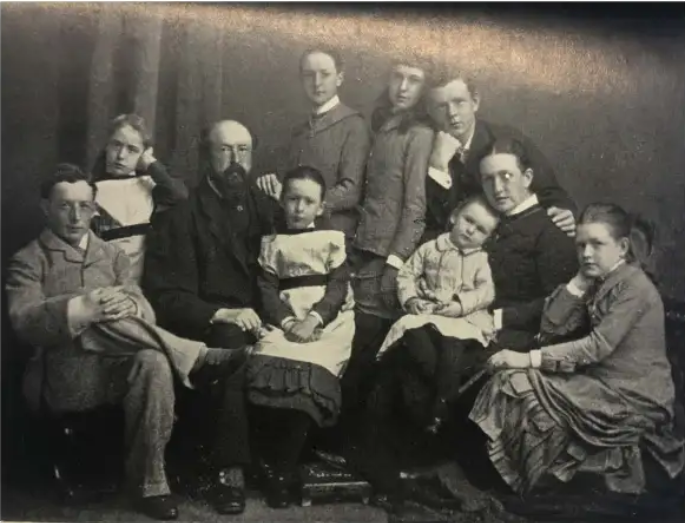
Lilian Faithfull was born on 12 March 1865. Despite being one of eight children, her father sent her to his brother-in-law’s prep school where she received a well-rounded and rare education. She was the only girl among twenty-five boys. After school she continued to study independently at home and through the university extension movement, which offered lectures in subjects such as history and economics.
Lilian Faithfull attended Somerville College from 1883-87, Oxford, where she received a first class degree in English. As a woman, she was not able to graduate officially at that time, but she claimed an ad eundem degree from Trinity College, Dublin in 1905. She was awarded an honorary MA degree from Oxford in 1925 and a CBE in 1926.
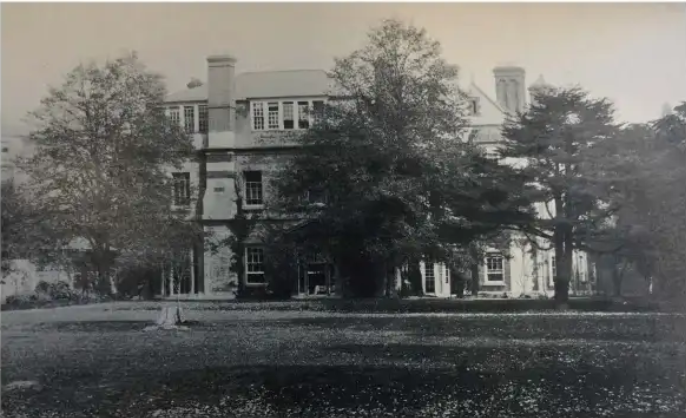
Lilian grew up with an attentive, strong mother, who kept elaborate accounts, wrote a diary and contributed articles on the ethics of daily life to magazines. She read widely and thoroughly, which set a valuable precedent for her daughter, who forged an extensive career in education.
Lilian Faithfull was a role model in a world of growing feminist consciousness.
Those of us born between 1860 and 1870 may indeed consider ourself fortunate, for we have lived through the most interesting and eventful period for women in our national history.
Lilian Faithfull, In the House of My Pilgrimage (1924)
In her memoirs, Lilian Faithfull reflects on the general social acceptance that women were expected to repress their own interests, and to focus instead on the topics that were at that time considered to be important. However, she grew up in a home where politics were discussed openly, religion and prayer were considered to be private matters, and an individual’s personal beliefs were not monitored.

Her parents were authoritative but never spoke down to her. They discussed their anxieties over such issues as money with their children. Lilian Faithfull and her siblings were all trusted members of the family unit. This stable, modern outlook on family life provided an example to Lilian to lead as she had been led. She forged a highly successful career in education.
Education and public service
After graduating, Lilian Faithfull served as secretary to the Principal of Somerville College from 1887 to 1888. She then taught for a year at Oxford High School.
She was appointed as Lecturer in English at Royal Holloway College, where she worked from 1889 to 1894. From 1894-1907, as Vice Principal of the Ladies’ Department of King’s College, London, Faithfull described her job as one of the happiest educational posts for a woman in England. The department offered women the same opportunities provided by the Oxford and Cambridge University extension lectures. Women aged seventeen to seventy came to listen to lectures from professors at King’s College.
Faithfull was active in promoting women’s education and advancing women’s rights to study for university examinations, degrees and diplomas. During her thirteen years as King’s College Vice Principal, the number of students doubled, a hall of residence was opened (1897), household science was developed as a serious branch of study, and King’s financial debt was cleared.
Following the death of Dorothea Beale in 1906, Lilian Faithfull was persuaded to apply for the position of Headteacher at Cheltenham Ladies’ College. In this post, she was remembered as a likeable, easy mannered leader, who showed great concern and appreciation for the welfare of her pupils and staff.

Faithfull recalled how she often had to report the news of lost fathers and brothers to her pupils during the First World War. She maintained an intercession room near her office where students could pray and have some privacy. She also organised a Red Cross hospital in one of the boarding houses.
She was amongst the first women magistrates to be appointed to the Commission of Peace in October 1920 and she was the first female magistrate to sit on the Cheltenham bench. She served as Justice of the Peace for twenty-five years until her retirement on 17 January 1946. Sir Francis Colchester-Wemyss recalled: “She has been a model of justice and will carry away with her the esteem and the affection of all the justices”.
Lillian Faithfull died on 2 May 1952 at Faithfull House, Cheltenham. She was buried in the town.
More than a decade after Lilian Faithfull stepped down as Principal at Cheltenham Ladies’ College in 1923, she used her experiences to embark on a new venture miles away from her home in Birdlip. She organised a cookhouse in London to provide meals for the poor. In an interview published in the The Citizen on 2 May 1936, Faithfull pointed out that, “one reason why this was happening was that with men unemployed, women were going out to work as domestic daily helps and in other capacities. They cannot do that and at the same time cook their midday dinner for the children”. A feminist consciousness is evident in her actions.
Relationship with pupils
Lilian Faithfull’s collection of talks to her Cheltenham Ladies’ College pupils, You and I: Saturday Talks at Cheltenham (1927), encapsulates the values she taught and displayed during her time as headteacher. Faithfull includes talks on a range of topics discussed at the weekly Saturday lectures. The collection includes letters of appreciation from the pupils and responses to the ideas raised in the lectures. Faithfull made use of the letters to expand in her writings on her talks and to offer further feedback.

Lilian Faithfull served as a role model for the pupils at Cheltenham Ladies’ College (pictured) by encouraging them to develop their thinking and speak their own minds. One respondent noted that these talks seem to bring us nearer to you. Just by having these conversations, Faithfull opened up ideas to her pupils. The talks made a significant impression, and inspired pupils in their own thinking and actions.

Lectures were on a broad range of topics, including such matters as the art of conversation. Faithfull placed an emphasis on the importance of conversation as a means to expand education and knowledge. She challenged societal norms by encouraging her pupils to speak up for themselves and to take an active part in public debates.
“…every girl is scared of not conforming with the common practice”.
In breaking with contemporary norms, Lilian Faithfull mentioned in her talks that she did not assume or expect that all of her pupils would get married. This suggestion was a radical idea for the time.
Gender is a feature of some of the talks. Faithfull outlined the differences she detected between boys and girls and how this was reflected in their education. She observed that from a young age girls displayed a tendency to change themselves to attract attention. This was, and still is to some extent, considered a normal aspect of teenage life, but unusually for her time, Faithfull raised this as a point for discussion.
Many of the talks were inspired by feminist ideas. Faithfull made a conscious effort to instil the types of values and morals in her pupils that prepared them for adult life. She discussed the principles of honour, truthfulness and authenticity. She reminded her pupils to find enjoyment in their youth, and nurtured them to be well-rounded individuals by encouraging them to develop hobbies that would sustain them into adulthood.
Lilian Faithfull was not just a headteacher to her pupils but also a mother-figure and a mentor. She cared a great deal about her pupils and shared with them new ideas and perspectives that challenged contemporary views. Many of her ideas became normalised in the years after her death and now form the basis of what we take for granted in the twenty-first century.
“You are content to think as a child, though you no longer feel as a child, and in other respect have put away childish things”.
Care home work

Lilian Faithfull ended her astounding career of care with the founding of an Old People’s Housing Society in Cheltenham in 1946. She put in place the foundations for a non-profit organisation that has provided 75 years of care for residents suffering from dementia and other illnesses. Lilian Faithfull Homes provide residence and now specialise in end of life care.
“There is active work to be done. We are not worthy to live in any society taking everything and giving nothing”.
The care home publicity notes that ‘our founder would be impressed by the introduction of modern equipment… but some things never change – the caring relationship we have with all our residents’.
The first care home started to support the local community in 1946 when it had just one house and twelve residents. By 2021 the care homes were able to support 300 residents in five different homes. Three day centres and flats were also supported by 450 staff members
The care homes still stand by the original principles that their namesake put forward when The Old People’s Housing Society was first established: “a desire to improve the lives of others through care and dedication.”
Lilian Faithfull remained active in the Old People’s Housing Society until her death on 2 May 1952. Her amazing work lives on today and is evident not only in Lilian Faithfull Homes but also at Cheltenham Ladies’ College.

